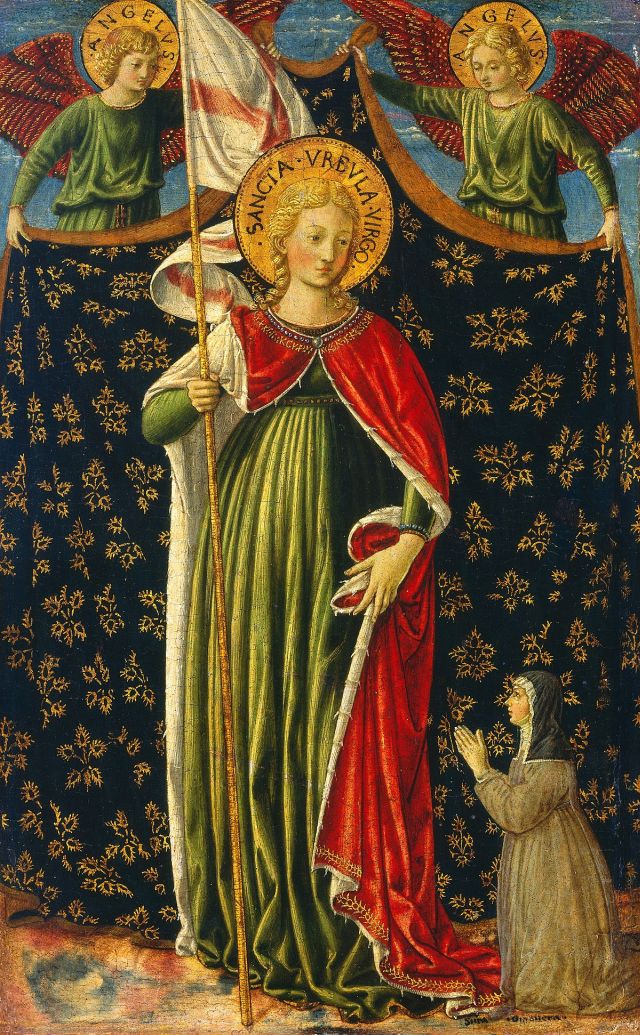
The Company of St. Ursula is present on the Six continents
Newsroom (October 25, 2021 09:55, Gaudium Press) Born in the year 362, Saint Ursula was the daughter of the kings of Cornubia in England. Despite having made a secret vow of total consecration to God, her father accepted the proposal of marriage made by Duke Conanus, a pagan army general.
The Saint was saddened to learn that her suitor was a pagan, and wanted to refuse the proposal, for she had been brought up in Christian principles. However, it was customary to always abide by the father’s decision, so Ursula asked for some time to prepare herself.
Wedding Trip
This preparation period was three years, and the Saint believed that during this time she would be able to find some way to avoid this marriage or even convert Conanus. However, she achieved neither.
As agreed, she left by ship on the Rhine River for her nuptials. The Saint was accompanied by eleven other young virgins who were to marry eleven soldiers of Duke Conanus.
Attila, King of the Huns
Arriving in the city of Cologne, they were surprised by the army of Attila, king of the Huns, who had taken the city. All the crew of the ship were killed, except Ursula, who attracted Attila with her beauty.
The chief of the barbarians tried to seduce the Saint and even proposed a marriage, but she refused, saying that she was already the wife of the most powerful of all kings on Earth: Jesus Christ. This statement infuriated Attila, who then slit Saint Ursula’s throat.
Order of Ursulines
The young woman died on October 21, 383. Her tomb is located in Cologne. In the Middle Ages, Saint Angela Merici founded the Company of Saint Ursula, also known as the Order of Ursulines. The aim of the Order was to offer a Christian formation to girls.
The Ursulines’ proposal was that these future mothers of families would amplify the Gospel, catechizing their own children. This was a pioneering initiative, because until then, the concern with education had been directed only to men. Today the order is present in the five continents. (EPC)